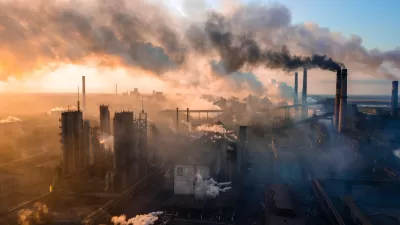Tensions between developed and developing nations surfaced over emissions and energy, with the former focused on reducing fossil fuels and the latter pointing to unrealized emissions reductions from the nations most responsible for global warming.

Representatives from 195 nations gathered in Dubai, the most populous city in the oil-rich United Arab Emirates (UAE), on November 30 to attend the 28th session of the Conference of the Parties (COP 28) to the United Nations Framework Convention on Climate Change (UNFCCC). The meeting will conclude on December 12.
Stacy Meichtry, Paris Bureau Chief of The Wall Street Journal, and Matthew Dalton, a Paris-based climate and energy reporter for the Journal, highlight the “sharp divisions over how quickly governments need to wean their economies off fossil fuels to prevent the planet from blowing past the Paris accord’s temperature targets” on December 1.
The threat of an overheating planet is driving demands from the U.S. and other governments for sharp reductions in fossil-fuel burning. Western officials are calling for a global halt to the construction of coal-burning power plants as they push for the final [global] stocktake to include a call for a “phaseout” of fossil fuels.
Big developing countries such as China, India and Saudi Arabia are expected to resist, saying that poorer nations will need coal, oil and natural gas for decades to power economic growth and provide energy security.
Developing countries also say the U.S., Europe and other wealthy countries haven’t cut their emissions as promised over the past 20 years. They say developed countries bear responsibility for the brunt of emissions that have been pumped into the atmosphere since the dawn of the industrial age.
Those nations have a point. While emissions may have dropped in parts of the developed world, not enough to make a change, reports Shannon Osaka for The Washington Post on December 4.
And while emissions are declining slightly in developed countries, such as the United States and the European Union, they aren’t falling quickly enough. Emissions in the United States are projected to decrease by 3 percent this year — American emissions from coal will drop to levels not seen since the early 1900s — while E.U. emissions will fall by about 7 percent.
Emissions in the U.S. actually increased last year due to Americans' love of driving, according to a November 29 emissions report from the Energy Information Administration.
Overall, U.S. energy-related CO2 emissions increased slightly in 2022 to 4,939 MMmt from 4,905 MMmt in 2021, driven by a 2% increase in transportation sector emissions and a combined 1% increase in the residential and commercial sectors, according to our newly released annual report on energy-related carbon emissions.
The rift between developed and developing nations over emissions and fossil fuels should serve as a reminder that the focus on fossil fuels needs to be not on their production but their consumption, as Samantha Gross, director of Brookings Energy Security and Climate Initiative, recently reported as “the way forward for the climate.”
FULL STORY: Rift Over Fossil Fuels to Dominate COP28

Maui's Vacation Rental Debate Turns Ugly
Verbal attacks, misinformation campaigns and fistfights plague a high-stakes debate to convert thousands of vacation rentals into long-term housing.

Planetizen Federal Action Tracker
A weekly monitor of how Trump’s orders and actions are impacting planners and planning in America.

In Urban Planning, AI Prompting Could be the New Design Thinking
Creativity has long been key to great urban design. What if we see AI as our new creative partner?

King County Supportive Housing Program Offers Hope for Unhoused Residents
The county is taking a ‘Housing First’ approach that prioritizes getting people into housing, then offering wraparound supportive services.

Researchers Use AI to Get Clearer Picture of US Housing
Analysts are using artificial intelligence to supercharge their research by allowing them to comb through data faster. Though these AI tools can be error prone, they save time and housing researchers are optimistic about the future.

Making Shared Micromobility More Inclusive
Cities and shared mobility system operators can do more to include people with disabilities in planning and operations, per a new report.
Urban Design for Planners 1: Software Tools
This six-course series explores essential urban design concepts using open source software and equips planners with the tools they need to participate fully in the urban design process.
Planning for Universal Design
Learn the tools for implementing Universal Design in planning regulations.
planning NEXT
Appalachian Highlands Housing Partners
Mpact (founded as Rail~Volution)
City of Camden Redevelopment Agency
City of Astoria
City of Portland
City of Laramie





























